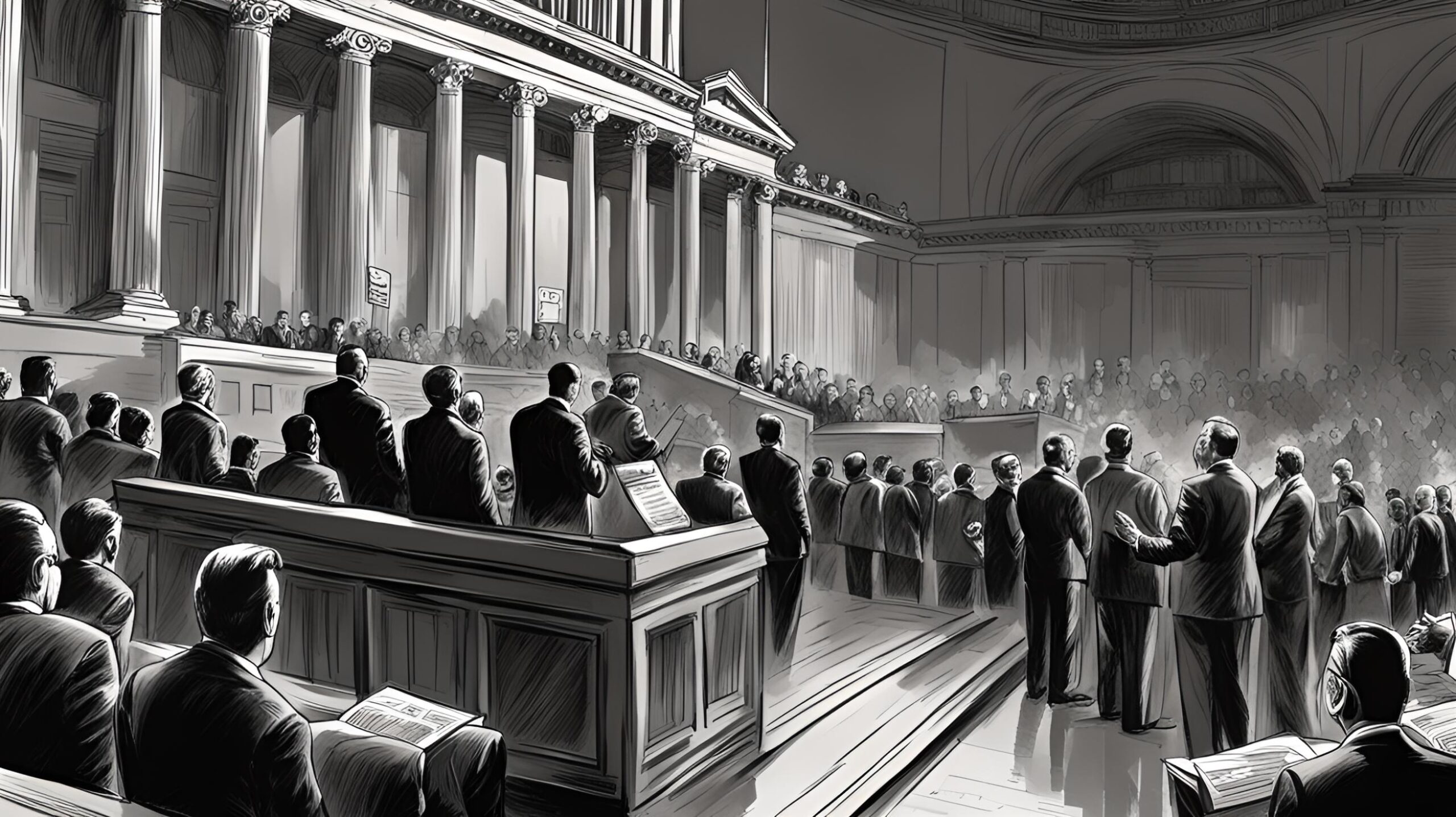Flashback to August 29
American History

1957
Strom Thurmond (Senator-Democrat-South Carolina) ends 24 hour filibuster against civil rights.
Read moreAs one scans the influential pages of American history, one landmark event often leaves a striking impression. This would be Strom Thurmond, then serving as Democrat Senator for South Carolina, ending his unprecedented 24-hour filibuster against civil rights on August 29, 1957. This moment does more than wear the badge of significance; it reveals a complex intersection of ideology, politics, and personal conviction.
Thurmond’s filibuster, possibly the longest in U.S Senate history, reflects an intense opposition to the Civil Rights Act of 1957. A critical examination of this event underlines the tumultuous journey towards securing racial equality and civil rights in the United States, a journey fraught with discord and dissent embodied in Thurmond’s vehement resistance.
The Civil Rights Act aimed to protect the right to vote for all citizens, an elementary aspect of democracy that still faced racial barriers in the mid-20th century United States. While widely celebrated for advancing equal rights, the act received a formidable challenge from Strom Thurmond, an ardent segregationist who championed states’ rights above federal jurisdiction. The South Carolina Senator vehemently stood against the bill, sparking one of the most dramatic standoffs in the U.S Senate’s history.
In an attempt to stall the passage of the bill, Thurmond embarked on the solo filibuster beginning on August 28, 1957— a verbal stand-off that he anticipated would throw a wrench in the clockwork of this rights-advancing legislation. His tactic involved continuous speaking on the chamber floor, employing a range of topics from states’ rights to historical anecdotes, and even reading out laws verbatim from the United States Code.
The filibuster lasted a staggering 24 hours and 18 minutes, not ending until the following day on August 29, 1957. This bold, if not unprecedented, move by Thurmond really shines a light on the magnitude of opposition that faced the Civil Rights Act of 1957.
While Thurmond’s filibuster impresses logistically—he sustained himself with a steak dinner, malted milk tablets, and even a bucket in the Senate cloakroom for private matters—it’s equally important to reflect on its political implications. What this marathon of resistance symbolizes is the struggle for civil rights in the face of deeply entrenched racial biases and the politically charged battle for equal voting rights. It’s essential to remember the context; this filibuster occurred in an era when segregation was still rampant in the USA, especially in southern states like South Carolina.
Despite his attempts, Thurmond’s filibuster could not derail the Civil Rights Act’s passage. However, it did significantly contribute to the already tense atmosphere surrounding the act, fueling national debates and bringing to stark relief the racial disparities that permeated American society.
Reflecting on Thurmond’s filibuster also illuminates shifts within American political parties. Thurmond, a Democrat during this event, eventually shifted his allegiance to the Republican party as it became more hospitable to his states’ rights viewpoint and opposition to federal civil rights legislation. This trajectory forms a vital part of the larger story of the realignment of the American political parties that we know today.
the event of Strom Thurmond ending his 24-hour filibuster against civil rights on August 29, 1957, is much more than a historical anecdote. It is a potent symbol of the roadblocks that stood in the way of equal rights and serves as a stark reminder of the lengths to which some would go to maintain the status quo. By remembering and analyzing these instances from the past, we afford ourselves a clearer understanding of the complexities and challenges that have shaped the collective American journey towards equality and justice. This event underscores the ever-evolving nature of dialogue, persuasion, and protest within the political landscape, holding lessons that remain relevant today.
We strive for accuracy. If you see something that doesn't look right, click here to contact us!
Sponsored Content

US Congress passes Civil…
The US Congress marked…

Strom Thurmond (Senator-Democrat-South Carolina)…
"Serving as a prominent…

Senator John McCain announces…
"In a pivotal moment…

The US Mint officially…
The US Mint unveiled…

Haverhill, Mass destroyed by…
Experience the brutal history…

